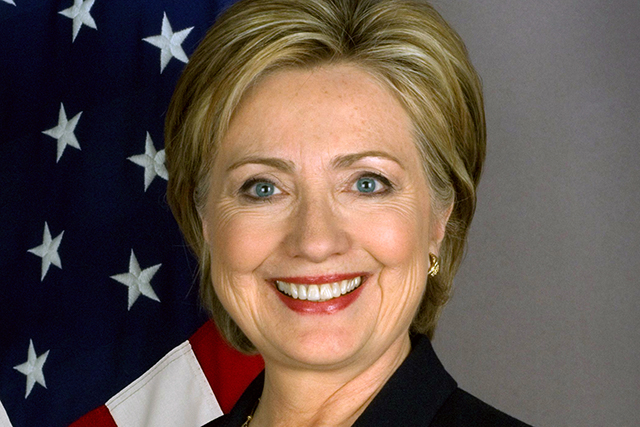
Photo courtesy of United States Department of State
Last week’s “SNL” spoof of the Democratic debate featuring Bernie Sanders (Larry David), Jim Webb (Alec Baldwin) and Hillary Clinton (Kate McKinnon), has been the talk of all things political in social media. And while there was much to admire about the show, the real highlight came when "Bernie" yelled that he is “damn tired” of hearing about Clinton’s emails, to which "Hillary" replied, “God it must be fun to scream and cuss in public. I have to do all of mine into tiny little jars.”
For me, Clinton’s response managed to overshadow David’s spot-on Bernie impression that has since been virally referenced on all social media platforms. In two sentences, her response brought attention to the widely understated issue of women’s leadership and involvement in politics, or lack thereof.
The truth of the matter is that most women in politics cannot afford to voice their opinions in a way that all men in politics get to do, even if only to spew hatred against minorities in America, talk foreign policy and women’s health statistics, all while having limited political experience or no authority to do so (i.e. Donald Trump). Women would never be able to get away with saying the same things that Trump has said, regardless of party affiliation, because they are unable to freely navigate the contemporary era of politics without being criticized for their womanhood or feminine features.
Clearly, there is a double standard imposed onto women politicians.
The overarching influence of traditional gender roles forces women in politics to refrain from being perceived as “too masculine,” but they are also chastised for being “too feminine” if they exhibit conventional feminine behavior.
Women are forced to walk a fine line between femininity and masculinity because masculinity is traditionally associated with strength, while femininity is associated with weakness. The double standard imposed upon women creates added pressure and may sometimes make it seem like very capable women leaders are unfit for political office.
A survey of 1,500 likely voters nationwide by the Women’s Media Center and She Should Run, both national networks committed to advancing and empowering women and girls, found that no matter what is said about a female political candidate’s appearance, it will have a negative impact on what potential voters think of her.
In this way, female politicians pay a political price that is often reflected in the polling results, regardless of their policies and stances on social issues, simply for being women. Take, for example, Hillary Clinton and the way that she was — and continues to be — objectified by news media, whose coverage of her in the 2008 presidential election focused not on her candidacy, but on her “stern” physical appearance, pantsuits and hair. This kind of news coverage has no place in media, especially when it undermines the ability of women to thrive in the workplace and in politics.
We live in a patriarchal society that values men and their power over women more than it does women being in power, so it comes as no surprise that nobody is talking about the way that discussing women’s looks in politics completely dismisses women’s intelligence, political competence and qualifications.
There is no doubt that Clinton is qualified to be the president of the United States given her political experience, but until her gender is no longer viewed as a point of contention, she will continue to be written off as unqualified.
ygarcia@ramapo.edu





